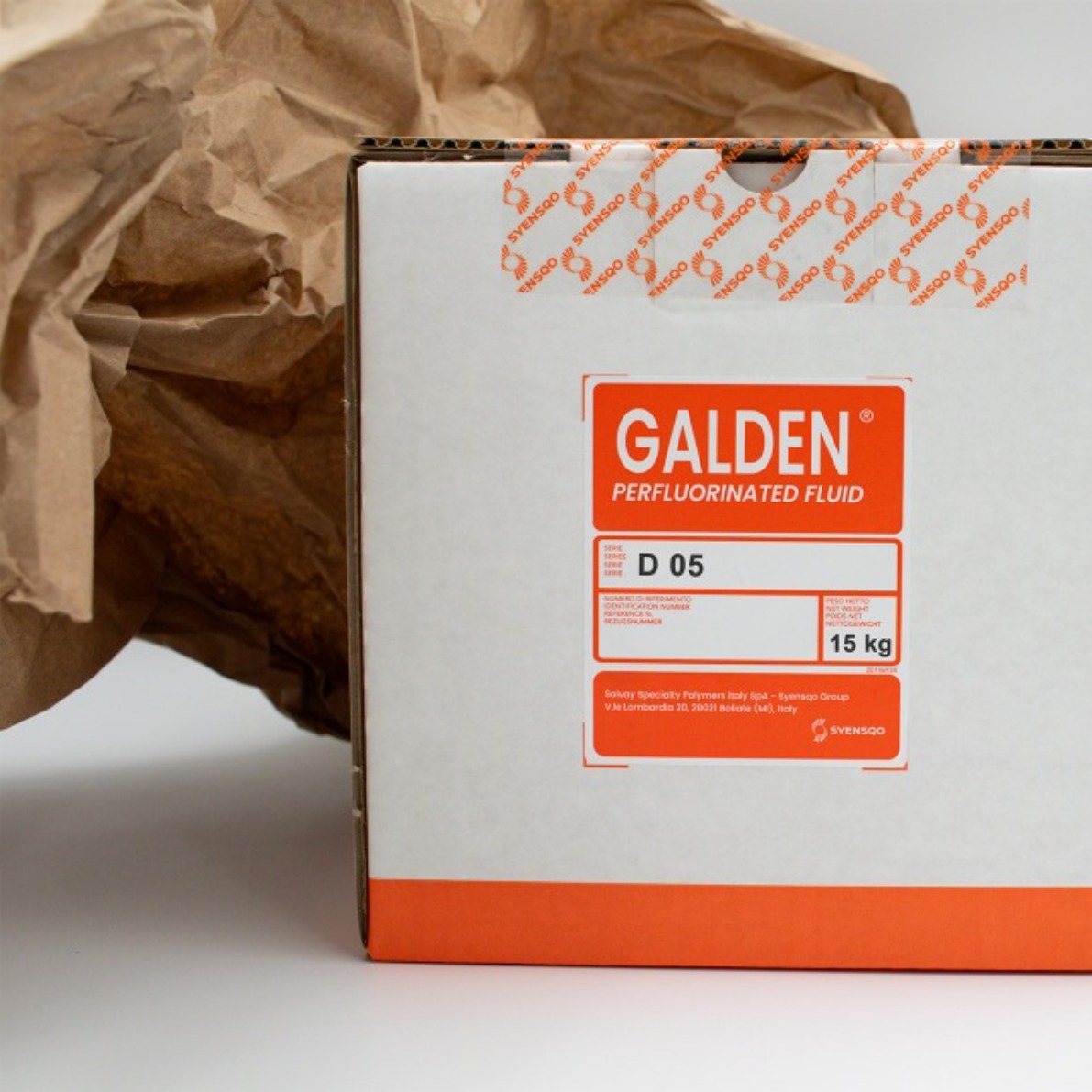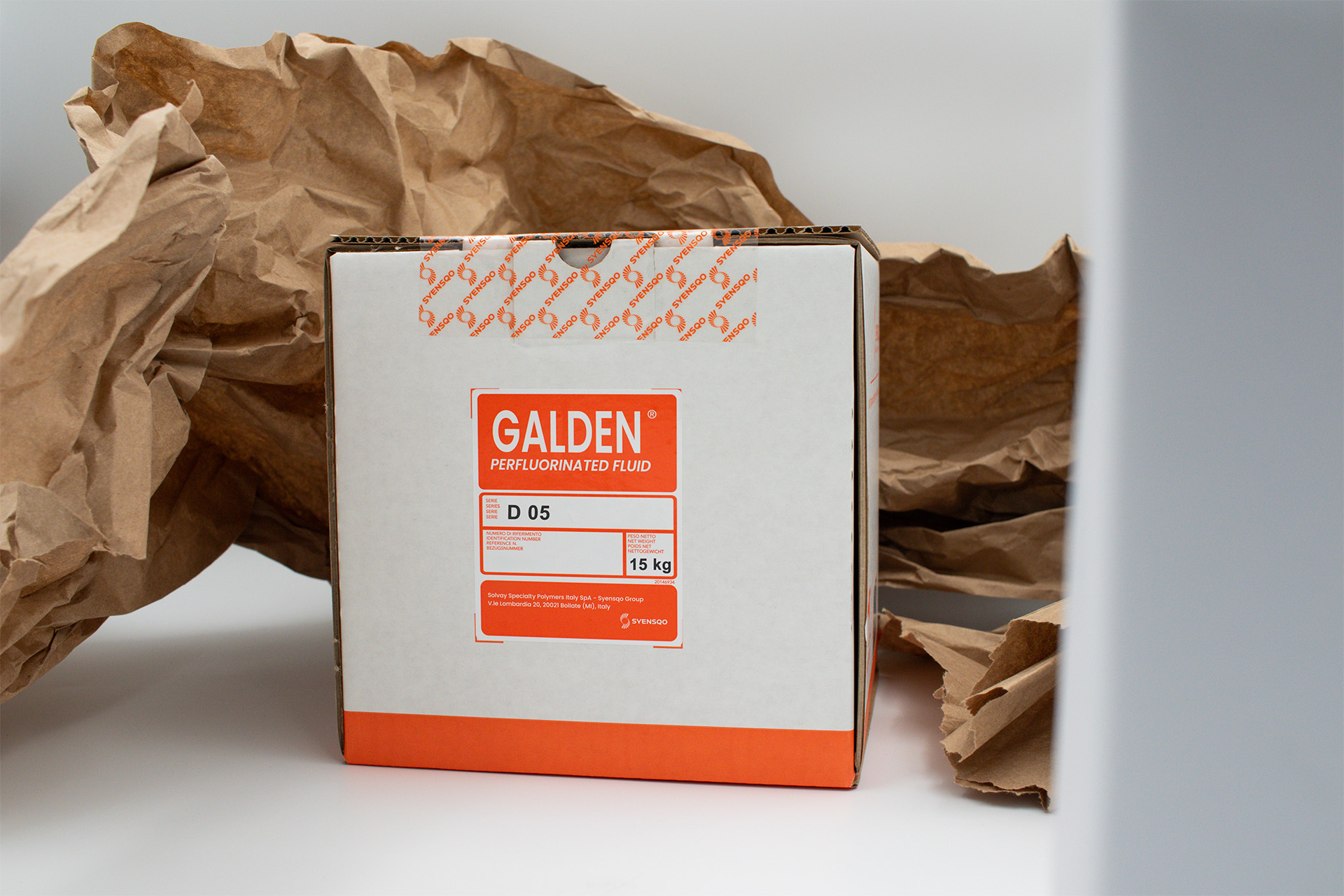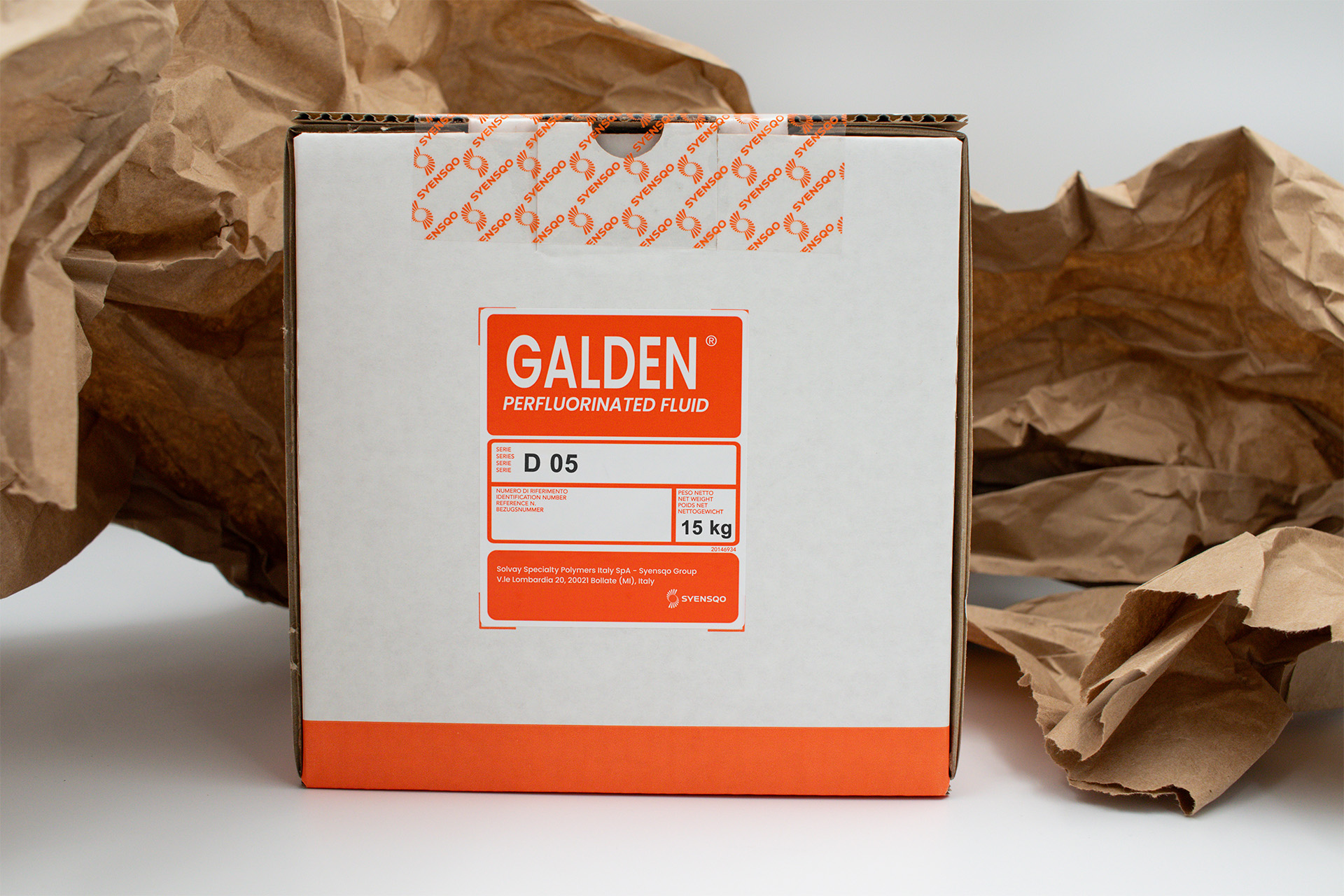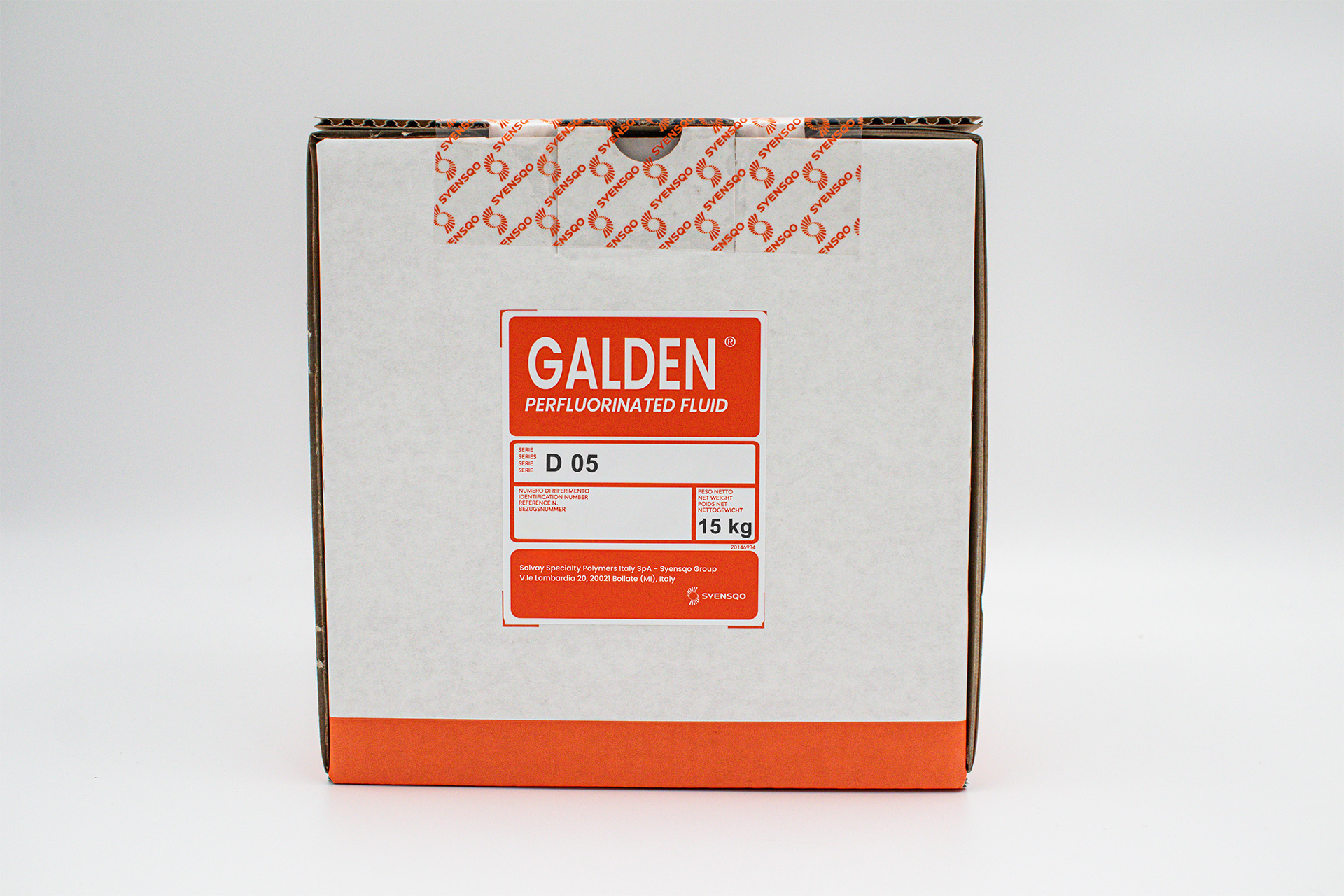依據歐盟施行的個人資料保護法,我們致力於保護您的個人資料並提供您對個人資料的掌握。
按一下「全部接受」,代表您允許我們置放 Cookie 來提升您在本網站上的使用體驗、協助我們分析網站效能和使用狀況,以及讓我們投放相關聯的行銷內容。您可以在下方管理 Cookie 設定。 按一下「確認」即代表您同意採用目前的設定。
PRODUCT
Products
Galden® PFPE D05 Electronic Fluids
Product Number:Galden® PFPE D02TS D02 D03 D05 DET
[Operating Temperature]
55°C~270°C
55°C~270°C

[Operating Temperature]
55°C~270°C
Galden® PFPE D05 Electronic Fluids
Galden® PFPE D02TS, D02, D03, D05, DET
Galden® PFPE Thermal Shock Testing
Thermal Shock: The Test
Thermal shock testing is conducted to assess the resistance of electronic equipment to extreme temperature variations. The test involves alternately immersing the device into two liquid baths maintained at different temperatures. For military applications, thermal shock testing must comply with the requirements outlined in MIL-STD-883 Method 1011 or MIL-STD-202 Method 107.Dual-Fluid or Single-Fluid?
Dual-Fluid System
Traditionally, two different fluids can be used in the hot and cold baths. However, this approach presents several disadvantages:
- High fluid loss in the cold bath
- Cross-contamination between hot and cold fluids
- Equipment downtime
- Need for two separate fluid inventories
Single-Fluid System
Galden® PFPE fluids and their use in single-fluid systems offer a beneficial alternative to dual-fluid solutions.Galden® D02TS and D03 are single fluids that can effectively replace dual-fluid systems.
- Galden® D02TS is recommended for all military applications; it complies with MIL-STD-883 and MIL-STD-202.
- Galden® D03 is suitable for all non-military applications.
Using the same fluid in both baths significantly reduces operational costs by:
• Lowering fluid consumption
• Reducing equipment downtime
• Eliminating cross-contamination
• Simplifying inventory management with a single product
Typical Properties |
Units |
Single Fluids | Dual Fluids | ||
|---|---|---|---|---|---|
| D02TS PFPE Electronic Fluids | D03 PFPE Electronic Fluids | D02 PFPE Electronic Fluids | D05 PFPE Electronic Fluids | ||
| Boiling Point | °C | 165 | 203 | 175 | 230 |
| Pour Point | °C | -97 | -85 | -97 | -77 |
| Density at 25°C -54°C |
g/cm3 |
1.77 1.95 |
1.79 1.96 |
1.77 1.95 |
1.82 1.98 |
| Kinematic viscosity at 25°C -54°C |
cSt |
1.7 45 |
2.4 160 |
1.8 - |
4.4 - |
| Specific Heat Capacity at 25°C |
cal/g/°C | 973 | 973 | 973 | 0.23 |
| Thermal conductivity at 25°C | W/m·°C | 0.07 | 0.07 | 0.07 | 0.07 |
| Coefficient of expansion | cm3/cm3·°C | 0.0011 | 0.0011 | 0.0011 | 0.0011 |
| Surface tension | dyne/cm | 16 | 16 | 16 | 17 |
| Dielectric strength | kV (2.54 mm gap) | 40 | 40 | 40 | 40 |
| Dielectric constant | - | 2.1 | 2.1 | 2.1 | 2.1 |
| Volume resistivity | Ohm-cm | 5.1015 | 5.1015 | 5.1015 | 5.1015 |
| Average molecular weight | amu | 750 | 870 | 760 | 1,020 |









